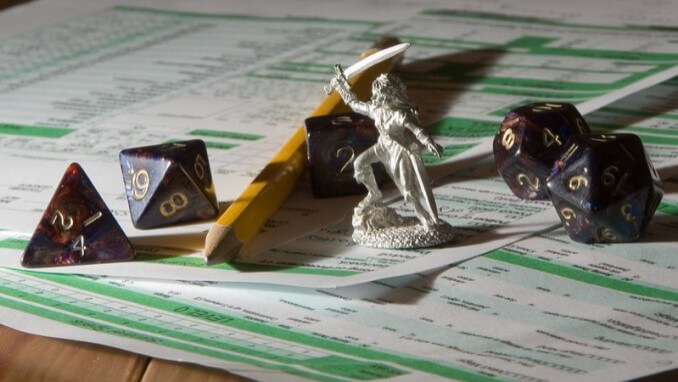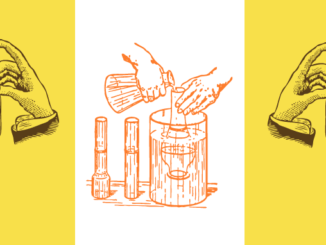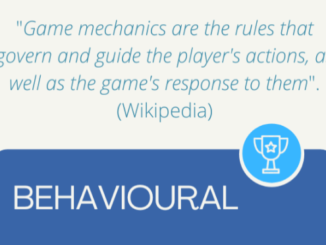
When I first came across Yu-kai Chou’s Octalysis framework, one of the articles he wrote about gamification really stood out for me. It was about turning your own life into an ‘real’ RPG. For someone like me, who had spent (and still does, when the opportunity presents itself) many hours seeking treasure in the most dangerous of dungeons, dodging, and killing, Bugbears and worse, and reaping the material and narrative rewards of adventure, this was a really exciting idea.
Actionable Gamification by Yu-kai Chou is available from Amazon
In RPG game worlds, success and progress are usually measured in two ways – money and other ‘stuff’ and, more importantly, experience. Unlike real life, ‘experience’ is mostly a quantitative not qualitative measure, and is at the heart of the game dynamic. Through ‘experience’ you gain status and capability. Experience points allow you to level up, which often comes with new titles reflecting your game reputation. Additionally, levelling up increases your competence. As (usually) a magic user, this meant that my character would have more (and more powerful) spells, with each new level.
Numbers which drive narrative
So, ‘Level’ is one part of how a character can be described. There are many others, including race (human, elf, halfling etc.) and class (fighter, mage, cleric etc.). Another main quantitative part of a character is their ‘stats’ – numeric measures of characteristics such as Strength or Wisdom – which also usually improve with level, and which work within the game to inform how well a character will perform in situations which require them to use that characteristic, for example, trying to pick a lock in the game, would require a test of one’s Dexterity.
Picking a lock is an ability or skill, and another numeric measure applied to characters is their level of skill. In some games you can list very specific skills (e.g. Archery), which can be improved by experience or training, and in any given situation, can be ‘modified’ up or down by one’s stats.
Outside of characters, other beings and even objects also have numeric measures – stats, modifiers and so on. Effectively, within a game, these are mechanisms which resolve narrative. There are lots of calculations in, a game of, say Dungeons and Dragons, (which is often a criticism levelled against these kinds of games), but they are only there to decide what happens, narratively, in a given game situation.

RPGs for Learning Games
I have returned to this idea, of real-life RPGs, in earnest, more recently, for designing learning games in organisational settings. In the meantime, RPGs themselves have moved on, and there are many games now which are much more qualitative in nature, which do not contain the ideas of levels, or stats or experience at all. But that is the topic of another article. In this one, I shall concentrate on those links that I see between the quantitative measures in more traditional RPGs and what has come to be known as the ‘Quantified Self’.
Yu-kai Chou suggested that these features of RPGs could be usefully applied to your real life in four steps (later refined to six).
Determine the game you are playing
What do you want to achieve? What are the goals and milestones along the way? In games, I love collecting gold, mainly because of the cool magic artifacts I can get with it, but in life, money is not a key motivator for me. Make sure that your goal is congruent with your values and that you are motivated to move towards it, or you will not enjoy your game of life, or you may achieve something you do not truly want. You might express the game as the industry you want to work in.
Determine your role in the game
..by understanding your stats and style. In your ‘Initial Stats’ you should explore what you are good at. This is a non-trivial step and may take lots of time to get right. Maybe you could enlist the help of friends, colleagues or even a coach. What you want to do is to find a role that you could play that would see you ‘winning’ at the game you identified in step one. The Initial Stats are different from Skills (comes later). Maybe you could view them more as ‘talents’ – “I’m good at making new connections with people”, “I’m very spatially aware” etc. You may already have decided your role “I want to be a learning designer”, but you also might find that when you have established your initial stats, that you revisit this role too.
Plan out a character skills growth road map
Yu-kai recommends mapping both the skills you have now, and the skills you will need to gain (or develop) in order to achieve the goals you have set for yourself. At what level do you need these? You could (like I did) literally apply numbers to establish the level you already have in these skills and the level you need to have, but that is up to you.
Find Teammates and conquer easy quests together to level up
You can find people who will help you to level up, but don’t forget that it is also important to help others to level up. Your skills levels will help you to see what quests you need to carry out in order to improve your skills to achieve your goals, and they will also help you to see where you have greater skills or more experience than someone else, and can thus help them on their own quest. For, example if you have identified that you need to improve your ‘video editing’ skill, you could attend a course, or you could volunteer to help someone who knows more than you with a video project they have in hand. Watch out for requests for help from your networks and offer mentorship where you can.
If you work through these steps you will have worked out the game you are wanting to play (the field you want to be in and your ultimate goal), your role in achieving that goal and your underlying characteristics that make that goal a good fit for you, a clear picture of the skills you need to achieve, and where you are with those skills currently. You will know who are your allies, who will help you and that you will help along the way and the quests you will need to carry out to ‘win’ at the game you have designed.
Designing your own Game of Life
So how does this gel with ‘Quantified Self’? Well it doesn’t necessarily. Yu-kai never specifically mentioned applying the kind of character design you would see in an RPG, with a sheet listing numeric values for stats. But for me, and maybe for others who see the world similarly to me, it was the next logical step. It gave me a way of assessing where I am in relation to where I want to be, and I thus applied the RPG analogy a little bit more literally than this idea necessarily needs. I give myself actual experience points, and I update my stats and skills as I see fit. When you come to undertake this exercise, how you apply the ideas is entirely up to you. And that is surely the point when designing your own game of life.

In games, goals are very clear. You know exactly what experience points you need to get to the next level, and you have a very good idea of what activities will get you to that milestone. This exercise puts you in a similar situation, with a major life goal.
This has just been a very brief introduction to designing your own game of life, as per the ‘Real-Life RPG’ from Yu-Kai Chou. He has since developed this idea in ‘10,000 Hours of Play’, and I would highly recommend that you get more details straight from the horse’s mouth. In particular, you can join Octalysis Prime to access 100s of hours of videos about this, and other aspects and applications of Octalysis.
You may also want to explore other ‘Self-Gamification’ ideas as developed by Ludogogy author, Victoria Ichizli-Bartels
- James Bore – The Ransomeware Game - 13th February 2024
- Ipsodeckso – Risky Business - 23rd January 2024
- Review – Luma World Games - 15th December 2023





Be the first to comment